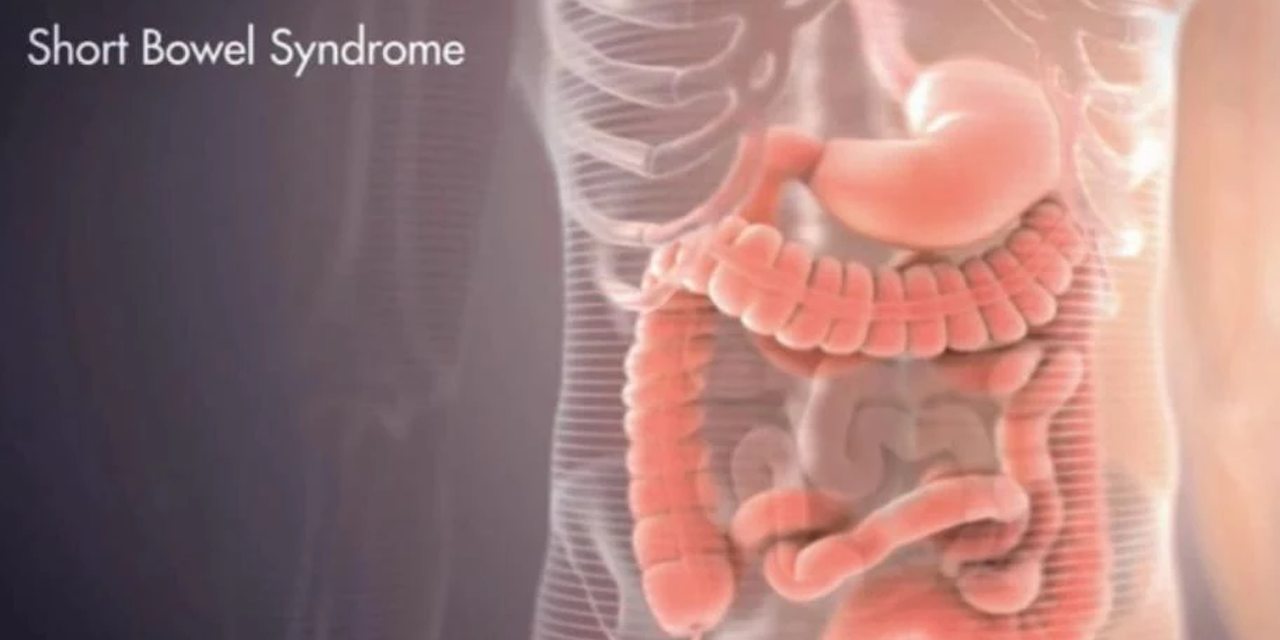Short Bowel Syndrome
OVERVIEW | CAUSES | RISK FACTORS | SYMPTOMS | COMPLICATION | DIAGNOSIS | TREATMENT | PREVENTION | REFERENCES

OVERVIEW
Short bowel syndrome is a condition in which your body is unable to absorb enough nutrients from the foods you eat because you don't have enough small intestine.
The small intestine is where the majority of the nutrients you eat are absorbed into your body during digestion.
Short bowel syndrome can occur when:
- Portions of the small intestine have been surgically removed. Conditions that may require surgical removal of large portions of the small intestine include Crohn's disease, cancer, traumatic injuries and blood clots in the arteries that provide blood to the intestines.
- Portions of the small intestine are missing or damaged at birth. Babies may be born with a short small intestine or with a damaged small intestine that must be surgically removed.
Short bowel syndrome treatment typically involves special diets and nutritional supplements and may require nutrition through a vein (parenteral nutrition) to prevent malnutrition.
CAUSES
Causes of short bowel syndrome include having parts of your small intestine removed during surgery, or being born with some of the small intestine missing or damaged. Conditions that may require surgical removal of portions of the small intestine include Crohn's disease, cancer, injuries and blood clots.
RISK FACTORS
Short bowel syndrome (SBS) can occur in a person of any age. Risk factors for SBS include defects existing at birth and diseases of the small intestine that require extensive or recurrent surgery such as Crohn’s disease or gastrointestinal cancers.
SYMPTOMS
Common signs and symptoms of short bowel syndrome may include:
- Diarrhea
- Greasy, foul-smelling stools
- Fatigue
- Weight loss
- Malnutrition
- Swelling (edema) in the lower extremities
COMPLICATIONS
The complications of short bowel syndrome may include
- Malnutrition
- Peptic ulcers- sores on the lining of the stomach or duodenum caused by too much gastric acid
- Kidney stones- solid pieces of material that form in the kidneys
- Small intestinal bacterial overgrowth- a condition in which abnormally large numbers of bacteria grow in the small intestine
DIAGNOSIS
To diagnose short bowel syndrome, your doctor may recommend blood or stool tests to measure nutrient levels. Other tests may include imaging procedures, such as an X-ray with a contrast material (barium X-ray), computerized tomography (CT) scan, magnetic resonance imaging (MRI), and CT or MR enterography, that can show obstructions or changes to the intestines.
TREATMENT
Your treatment options for short bowel syndrome will depend on what parts of your small intestine are affected, whether your colon is intact and your own preferences.
Short bowel syndrome treatment may include:
- Nutritional therapy. People with small bowel syndrome will need to follow a special diet and take nutritional supplements. Some people may need to get nutrition through a vein (parenteral nutrition) or a feeding tube (enteral nutrition) to prevent malnutrition.
- Medications. In addition to nutritional support, your doctor may recommend drugs to help manage short bowel syndrome, such as medications to help control stomach acid, reduce diarrhea or improve intestinal absorption after surgery.
- Surgery. Doctors may recommend surgery for children and adults with short bowel syndrome. Types of surgery include procedures to slow the passage of nutrients through the intestine or a procedure to lengthen the intestine (autologous gastrointestinal reconstruction), as well as small bowel transplantation (SBT).
People can ask their health care providers about surgical techniques that minimize scar tissue. Scientists have not yet found a way to prevent short bowel syndrome that is present at birth, as its cause is unknown.
REFERENCE
- https://www.mayoclinic.org/diseases-conditions/short-bowel-syndrome/
- https://www.niddk.nih.gov/health-information/digestive-diseases/short-bowel-syndrome
- https://pubmed.ncbi.nlm.nih.gov/17298760/






































































































